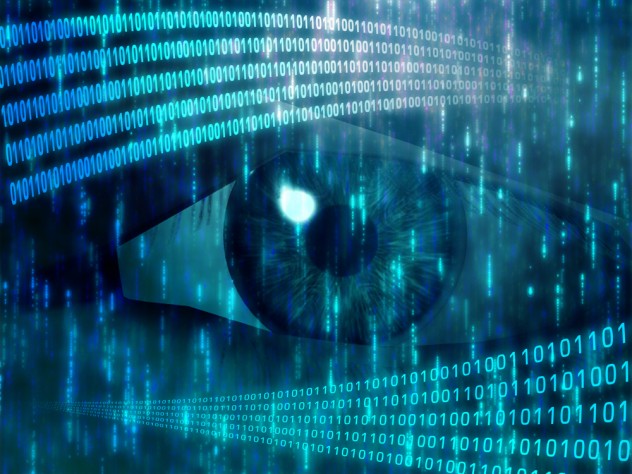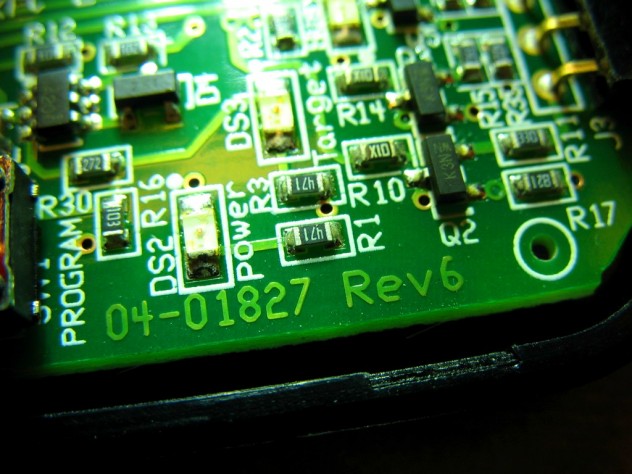 Our World
Our World  Our World
Our World  Crime
Crime 10 Dark Details of the “Bodies in the Barrels” Murders
 Animals
Animals The Animal Kingdom’s 10 Greatest Dance Moves
 Movies and TV
Movies and TV 10 Box Office Bombs That We Should Have Predicted in 2025
 History
History 10 Extreme Laws That Tried to Engineer Society
 History
History 10 “Modern” Problems with Surprising Historical Analogs
 Health
Health 10 Everyday Activities That Secretly Alter Consciousness
 History
History Top 10 Historical Disasters Caused by Someone Calling in Sick
 Animals
Animals 10 New Shark Secrets That Recently Dropped
 Movies and TV
Movies and TV 10 Forgotten Realities of Early Live Television Broadcasts
 Our World
Our World 10 Places with Geological Features That Shouldn’t Exist
 Crime
Crime 10 Dark Details of the “Bodies in the Barrels” Murders
 Animals
Animals The Animal Kingdom’s 10 Greatest Dance Moves
Who's Behind Listverse?

Jamie Frater
Head Editor
Jamie founded Listverse due to an insatiable desire to share fascinating, obscure, and bizarre facts. He has been a guest speaker on numerous national radio and television stations and is a five time published author.
More About Us Movies and TV
Movies and TV 10 Box Office Bombs That We Should Have Predicted in 2025
 History
History 10 Extreme Laws That Tried to Engineer Society
 History
History 10 “Modern” Problems with Surprising Historical Analogs
 Health
Health 10 Everyday Activities That Secretly Alter Consciousness
 History
History Top 10 Historical Disasters Caused by Someone Calling in Sick
 Animals
Animals 10 New Shark Secrets That Recently Dropped
 Movies and TV
Movies and TV 10 Forgotten Realities of Early Live Television Broadcasts
10 Orwellian Technologies That Exist Today
Although George Orwell was a little premature in predicting a total surveillance state in 1984, based on some of today’s technology, he wasn’t too far off the mark. In earlier lists we’ve mentioned a few paranoia-inducing inventions, such as Google Glass, facial recognition software, and brain scanners. If those things didn’t motivate you to don a tinfoil hat, here are 10 more scientific developments to give you the heebie-jeebies. With tools capable of tracking our every movement, reading our minds, and meddling with our brains, Big Brother now has power that Orwell’s Thought Police only dreamed of.
10 Implantable Memories

After the disclosures from government whistleblowers such as Manning and Snowden, most of us realize anything we say, do, or look at online is subject to monitoring by a third party. Combine that fact with camera drones, facial recognition software, and in-house spies (game consoles and TVs), and it appears the only truly private place left in the world is our brains. But is it really? It seems not, since even going off the grid or taking a vow of silence can’t protect our brains from being hijacked by implantable memories. Yes, thanks to the work of MIT scientists, you soon might not know whether your thoughts are truly your own or were artificially implanted.
The scientists have already successfully inserted false memories into mice by using optogenetics to turn individual brain cells “on and off.” Essentially, light is fed into the hippocampus, where it triggers specific cells known to relate to particular thoughts. The researchers can then tweak those memories to make the mouse believe something happened when it didn’t. For instance, they can cause a mouse to think a room is dangerous even though the rodent has never had a negative experience in the room.
While toying with the memories of mice is one thing, what happens when the technology inevitably expands to humans? Could someone make you believe you committed a crime when you hadn’t? What about education—one day, will everyone be implanted with the same, homogenous knowledge and belief systems?
9Power To See Through Walls

Apparently the scientists at MIT have a fascination with Orwellian technology, because in addition to figuring out how to manipulate memories, they’ve also designed a way to “see” through walls.
The technology, nicknamed “Wi-Vi,” interacts with the radio waves of Wi-Fi signals to detect movement on the other side of a wall. Similar to sonar or radar, it works by sending out wireless signals and using the ping, or bounce-back, to get an impression of the non-visible. To differentiate between stationary objects and humans, the Wi-Vi sends out two signals that cancel each other out unless they hit a moving target. Thus inanimate objects such as furniture are ignored while human movements are easily tracked on the Wi-Vi monitor.
Currently, Wi-Vi only shows moving blobs, not silhouettes or other details, but it can still give someone a glimpse of what’s happening behind closed doors. The technology is relatively inexpensive and the Wi-Vi team hopes one day to see their product in smartphones, where it could be used for home security and baby monitoring. On the flip side, we can easily envision it as every stalker’s favorite new toy.
8 Filter Bubbles

On first consideration, filter bubbles seem benign, if not downright helpful. Google and other search engines use them to filter search results based on your past internet activity. In other words, you and a buddy can perform a search using the exact same terms and get entirely different results. The search listings you are given are based on what Google thinks you will like.
So, what’s the problem? Well, instead of giving you the most relevant results, search engines put you in “information bubbles” that feed you content you tend to agree with. This can lead to people getting news only from like-minded sources and entirely missing competing arguments.
Consequently, the Internet—which is supposed to be the world’s largest source of information—becomes incredibly limiting. Those who aren’t careful can wind up filtering out all important issues and existing strictly in a world of content “junk food,” consisting entirely of celebrity baby news and porn. Of course, Big Brother is happy to oblige, since the unaware usually don’t make waves.
7 Televisions That Watch You

Earlier this year, Chinese manufacturer TCL introduced an HDTV that uses voice and video recognition to detect who is watching. The technology uses the Google TV platform and is intended to offer customized programming and advertisements based on the viewer. Other companies are producing similar TVs, which connect to your whole home network and can, for example, suggest products or ads on your computer related to what you’re watching on TV.
As if that weren’t enough of an intrusion, some camera-enabled TVs are even capable of peering into your home and monitoring your habits and facial reactions to what’s on the screen. So much for slumping over a bowl of ice cream while watching TV in your underwear.
Fearing the implications these televisions could have on a person’s privacy, Massachusett’s Representative Michael Capuano submitted the “We Are Watching You” bill, which requires companies to get permission from a consumer before their TV, DVR, or cable box can collect information. If passed, it will also force companies to post the message “We are watching you” any time information is being gathered.
It seems as though today’s world has two Big Brothers—the government and big business.
6 Internet Scrubbing

While filter bubbles can serve as a passive method to keep people uninformed, or at least isolated from alternative thinkers, internet scrubbing is a blatant way to suppress the free distribution of information. If you think there’s no way to hold back the massive tide of content on the internet, just take a look at what’s happening in China, where internet scrubbing is big business.
Since around 2007, “Internet crisis public relations companies” in China have been removing negative or controversial articles about their clients from the net. The services aren’t cheap—blocking a search term can cost $160,000—but desperate companies and public figures are willing to pay the price to maintain their reputations and keep the truth away from citizens. Law enforcement is trying to crack down on such services, which is somewhat ironic considering that the Chinese government also tampers with the Internet. For instance, nothing online reaches the Chinese people without first going through the country’s “Great Firewall.”
Although such extreme censorship is not seen in other places around the world, some believe it’s only a matter of time before it spreads, calling China a kind of Orwellian testing ground where autocrats can see what does and doesn’t work.
5 Hackable Cars

What’s scarier than being in a constantly followed car? Having a vehicle that will violently turn on you without notice. No, we’re not talking about that weird episode of Knight Rider when we met KITT’s evil twin, KARR. We’re referring to all the modern vehicles on the road with built-in software.
According to a recent report, today’s “connected” cars have software fixed into all onboard systems, such as brakes, powertrain, and throttle. Many also have built-in navigation systems and smartphone integration. While these features offer convenience and the promise of added safety, what they really do is make a car susceptible to theft, spying, and cyber attacks while they’re being driven. Essentially, someone with the right skills and resources can hack into a car and take over the controls.
While many fear the power this puts in the hands of terrorists and hackers, conspiracists claim government intelligent agencies are already using these tools for evil, and most recently assassinated journalist Michael Hastings by causing his Mercedes to crash into a tree.
4 License Plate Scanners

If you drive an automobile, there’s a pretty good chance there’s a file somewhere filled with photos of your car along with its location on the day each picture was taken. Thanks to lowered costs, local and state police departments everywhere are adopting license plate scanners and accumulating millions of digital records of vehicles and plates. These scanners are mounted all over the place, including on police cars, buildings, bridges, and traffic lights. They indiscriminately capture the image of every automobile that passes by and send the information to a police database.
While the purpose of the scanners is to deter serious crimes such as drug trafficking and child abduction, so far the most common crime people are being busted for is driving on revoked or suspended registrations. In the US, the Supreme Court made it illegal for police to use GPS to track an individual without first getting a judge’s approval, but there is no such restriction on using a network of scanners to follow a person’s movements.
With the eyes of the scanners always on, as one reporter put it, “You can drive, but you can’t hide.”
3 Kinect

Not to be outdone by the privacy-infringing smart TVs, Microsoft has its own Orwellian device—the Kinect. The Kinect has been the silent observer in many people’s living rooms for several years, and with the release of Xbox One this fall, its creepy factor is going up. That’s because the new Kinect is required to always be on. There’s no unplugging it or throwing a towel over it when you’re feeling a little shy, as the Kinect must stay at the ready for voice or hand commands even when the Xbox is off.
So, if a lot of your entertainment revolves around the Xbox, be prepared to have your actions, voice, and heart rate constantly recorded. Microsoft says they don’t transmit data back to their servers without user consent, and they swear they’ll never divulge your information to the NSA. However, Skype—now owned by Microsoft—promised the same thing, and we all saw how that turned out.
2 Brain-Fingerprinting

In a form of brain-scanning, forensic scientists have discovered how to use electroencephalography (EEG) to discover what information you’re hiding in your brain. It works by presenting you with images or words and measuring your electrical brainwaves. Currently it can perceive whether you have knowledge about something as well as pick up on your emotional state.
In 2008, an Israel-based security company announced plans to fine-tune the technology for airport security by integrating it with infra-red devices, flashing subliminal messages, and remote sensors. The idea is that instead of having to search your luggage or shoes, they can simply analyze your brain to gauge your intent. In other words, if you appear stressed or are reacting to subliminal images of bombs, you’re probably not going for a plane ride.
If that idea seems like a stretch, consider the fact that brain-fingerprinting is admissible in court and has already been used to challenge the murder conviction of Terry Harrington. In fact, brain-fingerprinting has huge potential as a law-enforcement tool, as it can be used tell whether or not a person remembers an event. With a less than 1 percent error rate, it’s a shoo-in to replace traditional lie detector machines. However, when we consider that memories are now controllable, brain-fingerprinting might not be as foolproof as originally thought.
1 Implantable Body Sensors

Scientists in both the US and Britain are developing implantable biochips with the ability to monitor your vital signs and behaviors and wirelessly transmit the data to medical staff. These biochips are implanted in the body and can detect fluctuations in blood pressure, blood glucose levels, and heart rate. They also notice changes in behavior that could indicate a health issue, such as a difference in posture or whether you have taken prescribed medication.
VeriChip—now branded as PositiveID—paved the way for such technology with its implantable identity chips, which electronically linked people with their medical records. VeriChip earned United States FDA approval back in 2004 and was the first to market a biochip to the public, but in 2010 the product was discontinued because of poor sales. Not surprisingly, people weren’t too keen on having a scannable microchip capable of divulging personal information embedded in their skin.
Still, the newest biochips being created have a better chance of success, as they are targeted specifically at people in dangerous professions such as the military, and those with serious medical conditions. Such individuals are more likely to accept a loss of privacy for the reassurance that comes with constant medical supervision.
The Orwellian fear about these chips is that, were they to become mainstream, it could be a slippery slope leading to employers or insurance agencies requiring us to get a biochip so they could oversee our health and lifestyle habits. Thus, like everything in this list, biochips are a double-edged sword—they have the potential to do so much good, yet could easily be manipulated to work against us.
Content and copy writer by day and list writer by night, S. Grant enjoys exploring the bizarre, unusual, and topics that hide in plain sight. Contact S. Grant here.








